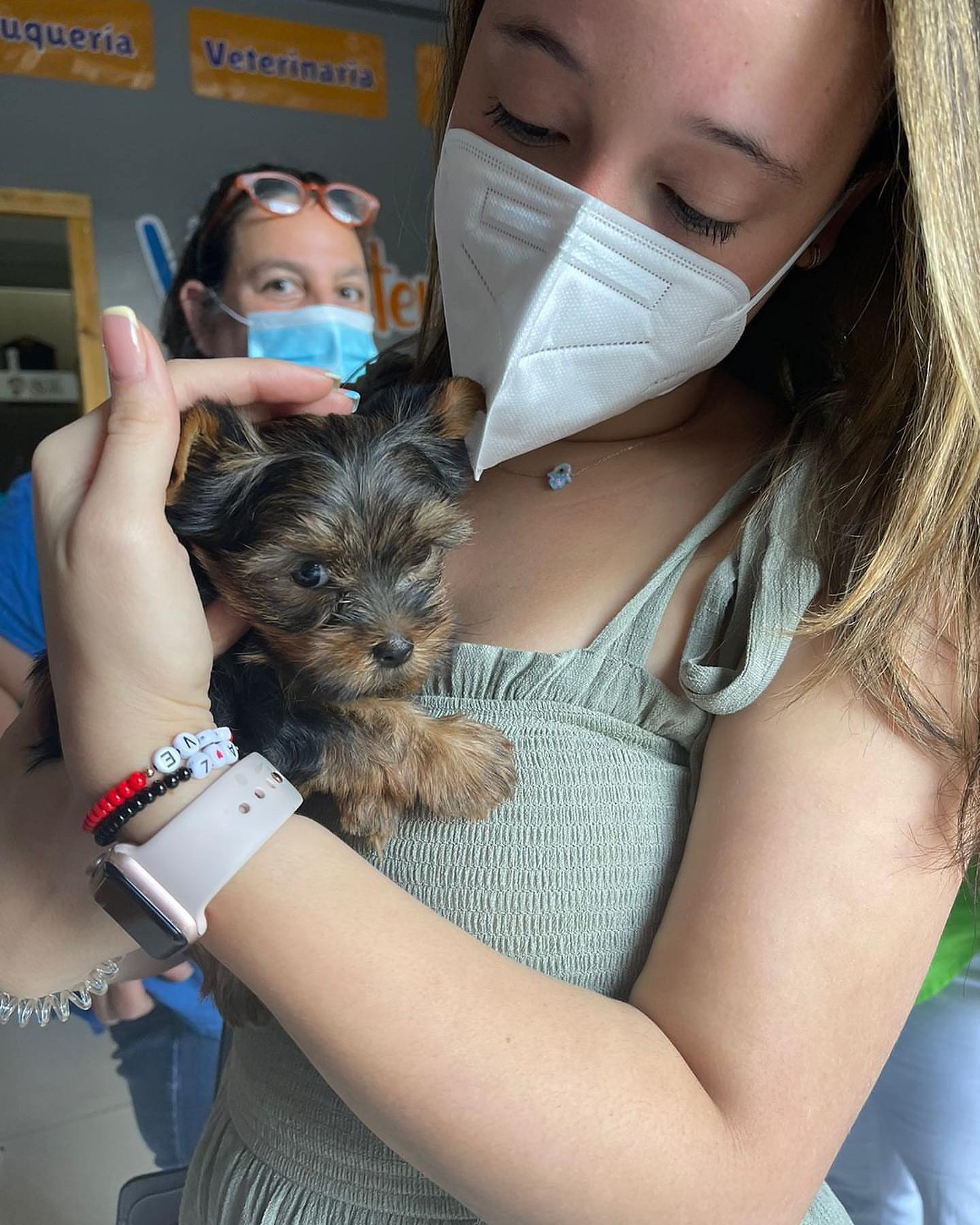The 12 Worst Types Small Dog Breeds Puppies People You Follow On Twitt…
페이지 정보

Annis
2025-04-29
-
5 회
-
0 건
본문
Small Dog Breeds Puppies: A Comprehensive Guide
Small dog breeds have acquired immense popularity in the last few years, frequently celebrated for their manageable size, playful characters, and viability for numerous living conditions. Puppies of these breeds can be especially appealing for households, city occupants, and those looking for a faithful buddy. This short article will check out various small dog breeds, their particular traits, care requirements, and suggestions for potential owners.

Comprehending Small Dog Breeds
Lap dog breeds generally weigh less than 22 pounds when totally grown. Their compact size makes them ideal for apartment or condo living, as they require less area and workout compared to larger dogs. However, lap dogs often have big characters, showing energy and interest that can charm anyone.
Popular Small Dog Breeds
Here is a table outlining some of the most popular lap dog breeds, their weight variety, and some distinct qualities:
| Breed | Weight Range | Special Characteristics |
|---|---|---|
| Chihuahua | 2 - 6 pounds | Devoted, courageous, and alert; frequently bond carefully with a single person. |
| Cayden yorkshire kaufen mini biewer yorkshire terrier kaufen | 4 - 7 pounds | Affectionate, energetic, hundebabys yorkie [mouse click the following webpage] and known for their long, smooth coat. |
| Pomeranian | 3 - 7 pounds | Lively and extroverted; has a distinctive fluffy double coat. |
| Dachshund | 8 - 12 pounds | Brave and spirited; known for their distinct sausage-like body. |
| Shih Tzu | 9 - 16 pounds | Friendly and outbound; has a lovely long coat and a distinct pushed-in face. |
| Maltese | 4 - 8 pounds | Gentle, spirited, and hypoallergenic; understood for their white silky coat. |
| French Bulldog | 16 - 28 pounds | Friendly, spirited, and typically has bat-like ears; understood for their muscular construct. |
Picking the Right Breed
When picking a lap dog type puppy, it's necessary to think about several factors:
- Lifestyle: Understand your daily regimen and activity level. Some breeds are more active and Yorkie Hundezüchter require more workout.
- Living Environment: Consider if you reside in a house or a house with a lawn. House dwellers may benefit from breeds with lower workout needs.
- Allergic reactions: Some breeds are more hypoallergenic than others, which is necessary to consider for allergic reaction sufferers.
- Kids and Other Pets: Choose a type known for being gentle with kids and compatible with other family pets if you have them.
Care Requirements for Small Dog Breeds
Owning a small breed puppy features particular care requirements. Comprehending these can ensure your new furry friend lives a happy and healthy life.
Nutrition
- High-Quality Dog Food: Select dog food developed for small breeds, which generally includes a higher protein level and smaller sized kibble size.
- Part Control: Small dogs are vulnerable to weight problems. It's essential to determine food portions carefully.
- Hydration: Always provide fresh water to keep your puppy hydrated.
Training
- Basic Commands: Start with fundamental commands like sit, stay, and come. Small dogs can be more persistent however are extremely trainable with favorable reinforcement.
- Socializing: Introduce your puppy to different individuals, settings, and other animals to develop self-confidence and adaptability.
- Cage Training: A cage can supply a safe area for your puppy and assist with house-breaking.
Health Care
- Regular Vet Visits: Schedule regular check-ups and vaccinations.
- Grooming: Some small breeds need routine grooming and maintenance of their coats. Routine brushing and occasional baths are essential.
- Dental Care: Small breeds can be prone to dental concerns, so it's crucial to brush their teeth frequently or offer dental chews.
Frequently asked questions
1. What lap dog type is best for households with kids?
Breeds like the French Bulldog, Beagle, and Cavalier King Charles Spaniel are understood for their mild temperament and friendliness towards kids.
2. Just how much workout do lap dog type puppies require?
Many lap dog breeds need around 30 minutes to 1 hour of exercise daily, depending on their age and energy level.
3. Are lap dog breeds more vulnerable to health problems?
Yes, some small breeds are vulnerable to particular health issues, such as oral diseases, heart issues, or patellar luxation. Routine veterinary check-ups can assist keep an eye on and deal with these concerns.
4. What is the typical life expectancy of lap dog breeds?
Typically, lap dog breeds can live anywhere from 12 to 16 years, with some breeds living even longer with appropriate care.
Owning a small dog type puppy can be a rewarding experience that brings pleasure and companionship to any home. Understanding the qualities and care requirements of numerous small breeds is vital for making sure a happy canine companion. With proper training, socialization, and mindful care, small breed puppies can thrive and become precious member of the family for several years to come. Before making the dedication, possible owners should thoroughly assess their lifestyle, environment, and capacity to supply the care required, making sure a lasting and satisfying bond with their new pup.
